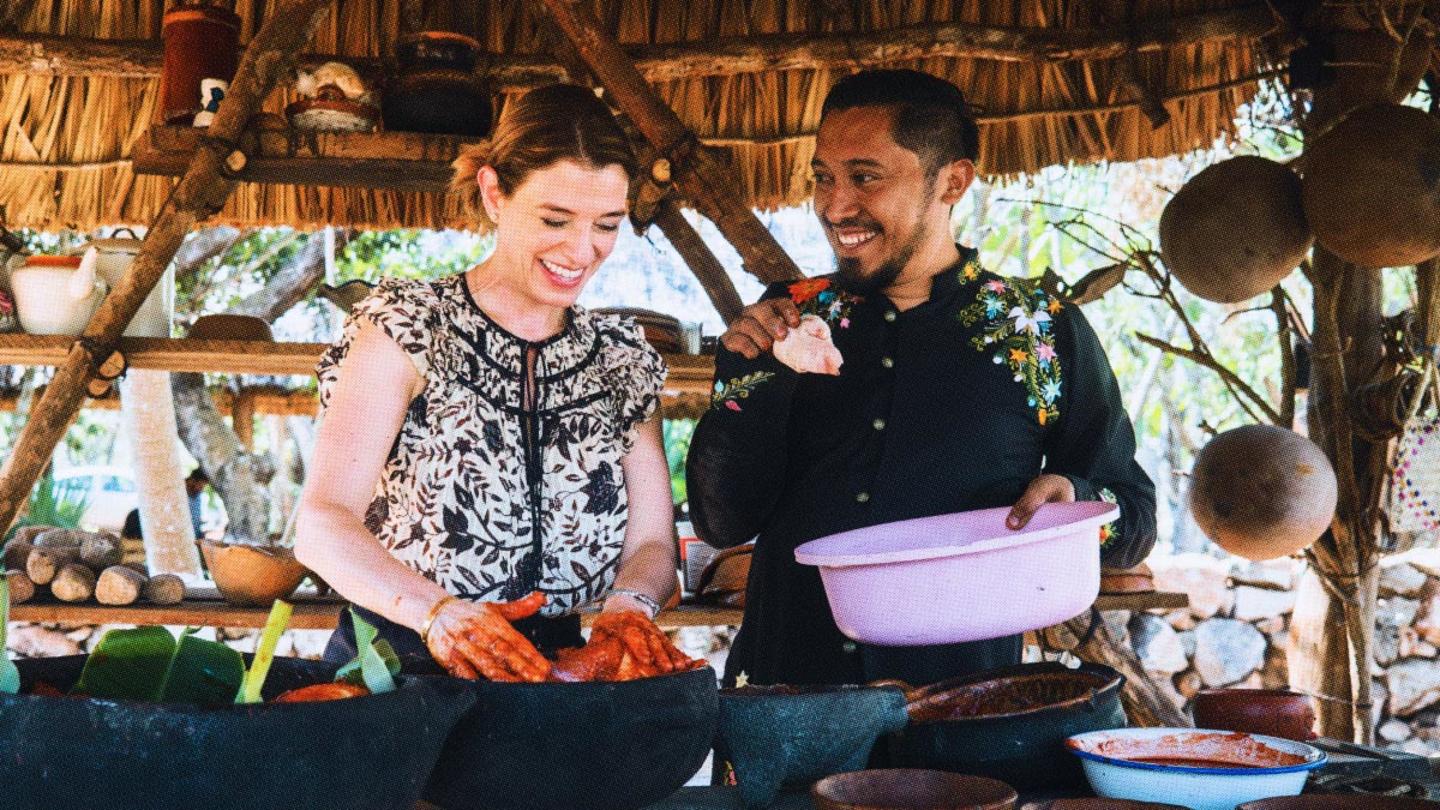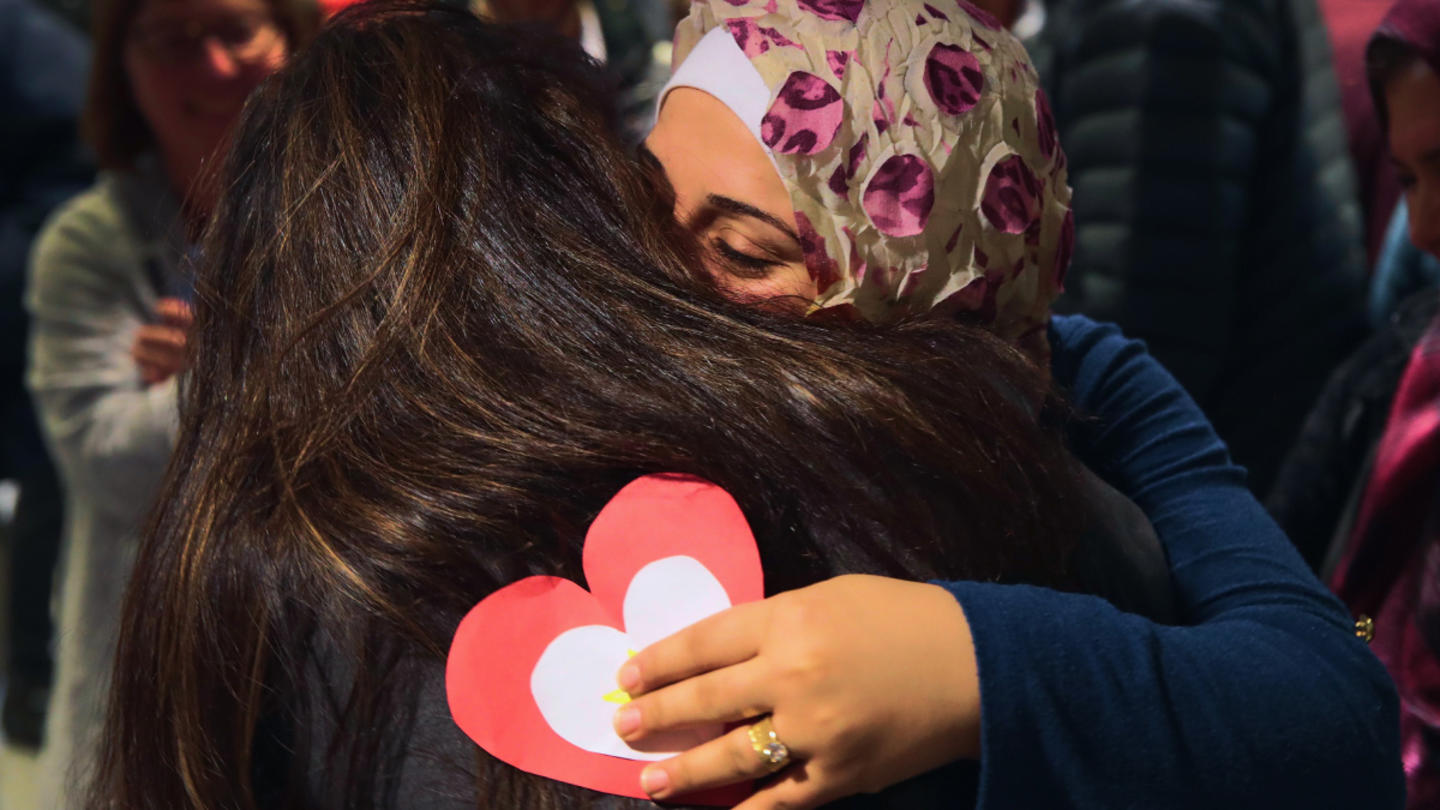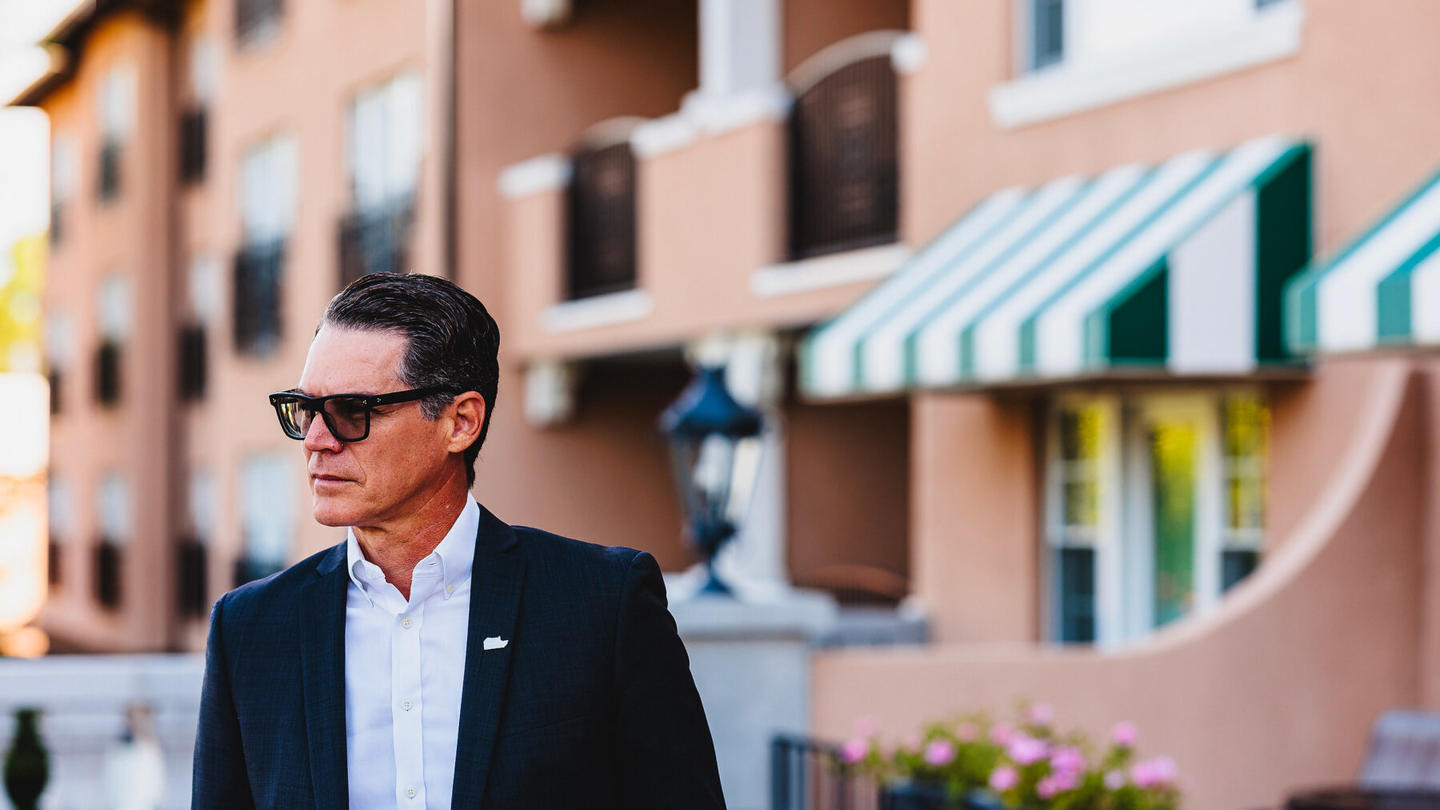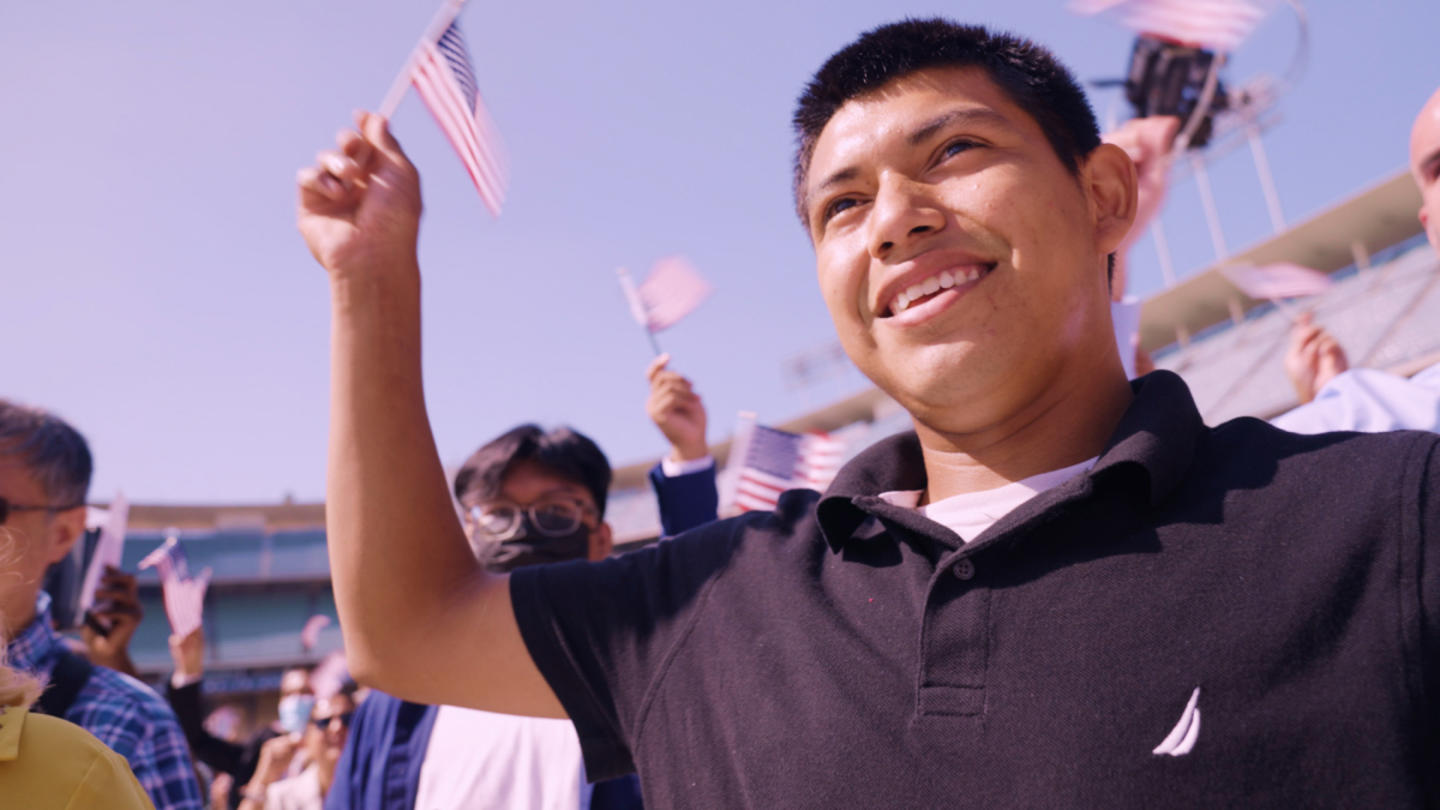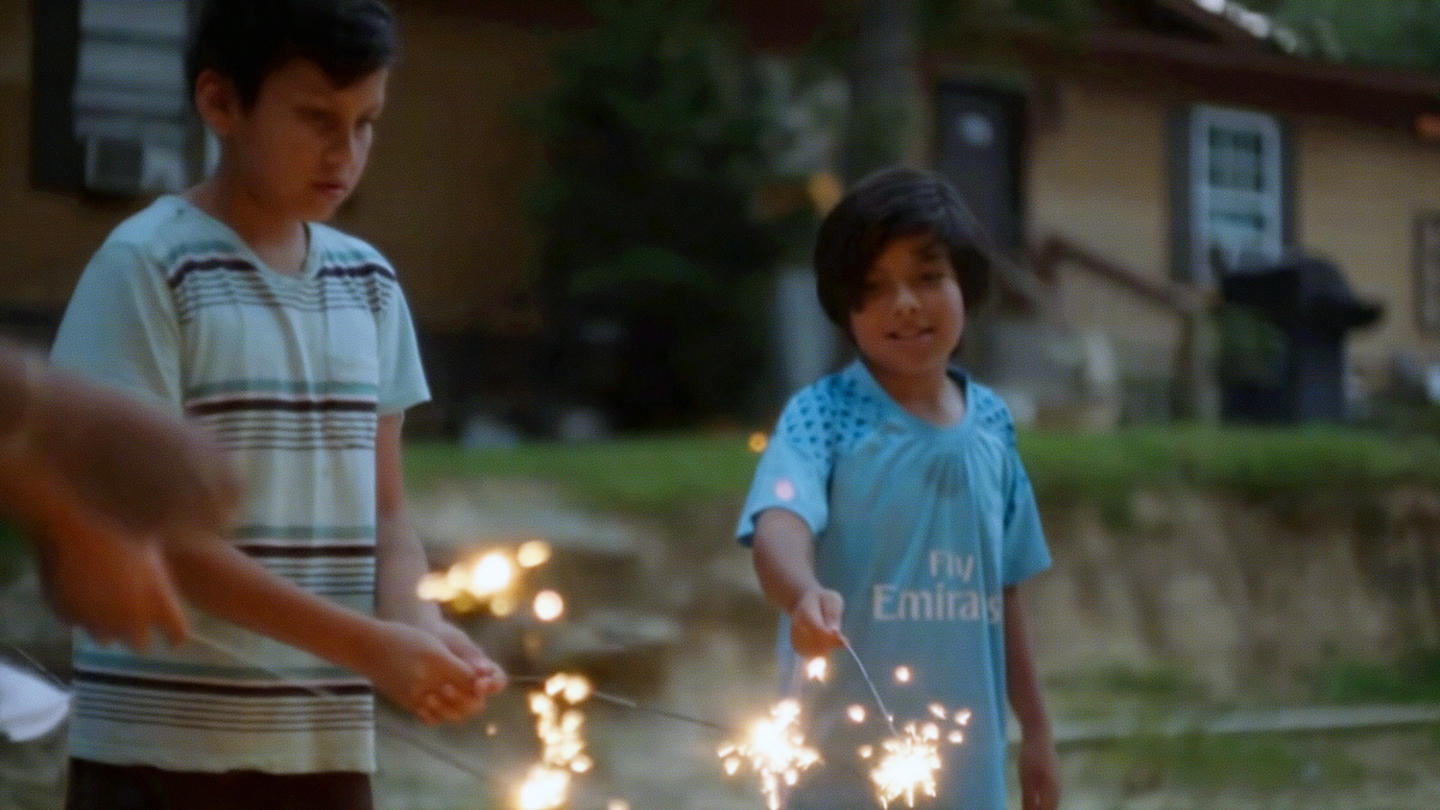When chef Pati Jinich's friends finally let her contribute to their Thanksgiving, she felt like she had achieved a new milestone.
"I didn't know about it until I moved to the United States. My American friends wouldn't let me make the turkey for the first 10 ten years, and finally one day they said, 'Pati, fine.'"
She made a turkey in the style of Yucatan in her native Mexico, pasted in cornbread and stuffed with chorizo, jalapeno and apple. It was a hit, and ever since, Jinich and her friends have traded off bringing unique dishes to their Thanksgiving table.
Jinich is a strong believer that Thanksgiving provides much more than an opportunity to swap tasty foods — it allows Americans of all backgrounds to share their cultures with one another through recipes. Doing so opens up larger conversations about common ground and shared values, catalysts for transformative change within people and society.
"It provides a very special opportunity for people to allow you in and to show your flavors from your culture," she says. "That's a very American DNA. These are spaces where people don't feel threatened … they feel safe and appreciated. It's a very special opportunity for immigrants to show how they can add on to what exists without diluting it, without making it less, but enriching it."
Here, Jinich lets us in on what recipes she's most excited to try this upcoming holiday, and how Thanksgiving can be an opportunity to think about how talks around the table can be the start of identifying ways to create change in our communities.
This conversation has been edited for length and clarity.
Stand Together: How did you first discover your talent for cooking and when did you realize that it could be leveraged for bigger conversations?
Jinich: When I moved to the United States, I was not a good cook, but I've always been a phenomenal eater.
I realized that by way of food, not only was I able to connect to my roots and feel warm and cozy and nurtured, but that I could also connect much better to others. When there seems to be no way for people to connect because there's no common language, or because there's different points of view in terms of politics or culture, food really brings us together and opens doors.
I had done a master's in American studies, and I was working in a think tank. (But) I decided that I was going to make food my language in my work. So I enrolled in cooking school so that I could do justice to the food from where I came from, and I could really explain it and empower people not only by making recipes, but by understanding the people and the stories behind that food. I wanted to empower people, not only with what to make for dinner on a Wednesday night, but also with bringing the world into their kitchens. I haven't looked back since then.
Have you ever had any surprising conversations pop up over meals, or have any new perspectives occurred to you, when you're sharing someone else's culinary traditions?
Absolutely. I've learned so much through food, and in my latest docuseries "La Frontera," I went all the way from San Diego to Tijuana to Brownsville, and I met so many different people north and south of the border. Not only Americans or Mexicans, but really people that have come from all over the world, people who just love the area, people who are fleeing — there's not just one story.
Over food, when you sit down with someone in their home to eat, all the walls come down and the veils lift up, and you can really connect. I've learned so much, not only about Mexico and the place that I come from, but about the United States, which is now my home. It's my favorite way to connect. I feel like it's the most true and transparent and uncluttered way to understand someone.
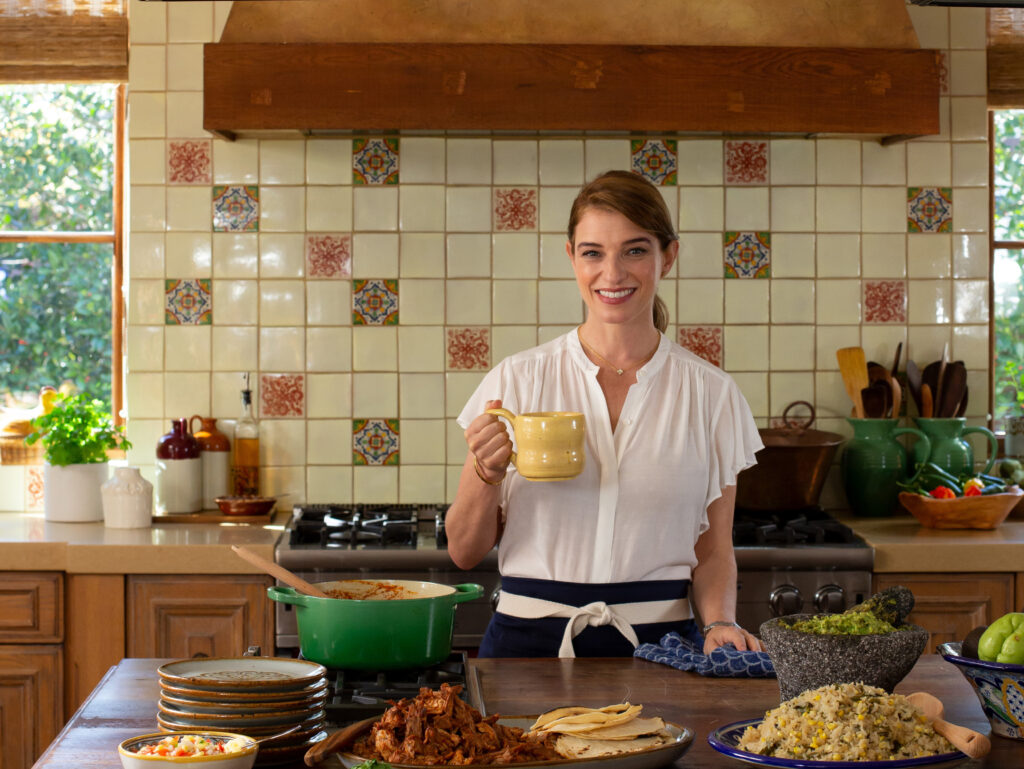
How do you think Thanksgiving gives people the opportunity to engage in openness and have these conversations?
Thanksgiving has become my favorite U.S.-based holiday. There's a very set structure, but at the same time, openings for new seasonings and new flares. My American friends would always make the turkey the American way, but would say, "OK, you can bring a side." I feel like it's a very easy way for people to allow you in and to show how your flavors in your culture, in your cuisine, can enrich something.
I find that more than the "melting pot," I realized that the United States is much more of a beautiful mosaic. It has intersections. It doesn't make it a fusion where you don't recognize who added what. You can still see, that was Mexican, that was Pakistani. You can recognize their soul, and be absolutely delicious and incredible and genuine and authentic to the people who are making it. It is in creating new things and representations of that culture, that we see in a fresh new way. It's exciting.
When you're learning about someone else's culture through food, sometimes it strengthens your understanding of your own culture too. Have you found that to be the case?
Absolutely because you're comparing. When somebody gives you bread, you're like, "Wait, I didn't realize it, but in Mexico we make bread this way." We've been spending Thanksgiving with our same group of friends since we moved to Washington, D.C. It made me feel like because I was partaking in a U.S.-based holiday, it's not that I was being less Mexican, but I was being more Mexican, because my turkey was very Mexican.
At the same time, I was feeling American too, and that made me feel like, "OK, I'm now Mexican-American." I have very deep roots in Mexico, and I'm growing strong roots here in the United States, and that doesn't make me less of either. It makes me doubly blessed, but it makes me feel doubly responsible too, to do right by my culture and by my home country. If I'm trying to enrich this table, I better do a heck of an amazing turkey.
Are there any recipes that you're excited about for this Thanksgiving?
Of course! On my website, I have two turkey recipes, a couple of stuffings, and a few sweet potatoes that are really amazing. I also have a pecan pie that's great. It's a Mexican pecan pie. I think those are going to be great.
What do you hope can happen in the world at large if more people connect their unique gifts to solving big issues around them — like you have with your talent for cooking?
I think we all have our thing that we're good at. It may be connecting through food, it may be connecting through making music, or helping others be entrepreneurs and launch their small businesses. I feel that when you find something that you enjoy deeply, you realize it does good beyond you. It spreads to your community, and that can enrich other people's lives. That is just so fulfilling.
Pati Jinich is a celebrity chef and partner of the Stand Together community, which helps changemakers tackle the root causes of America's biggest problems.
